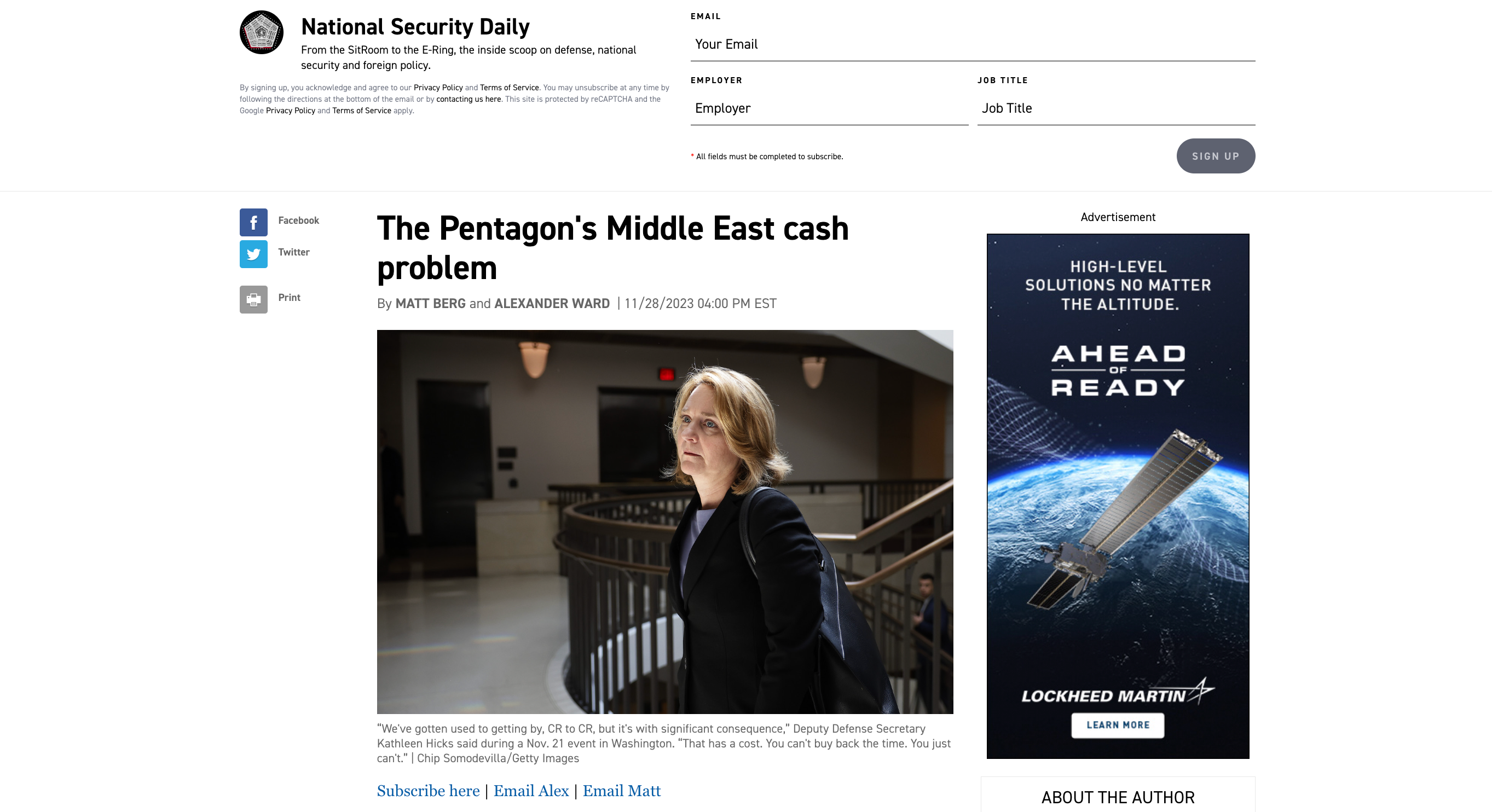If you have been paying even the tiniest bit of attention to the ins and outs of the Pentagon budget for the past two decades-plus, you would know that the Defense Department isn’t hurting financially. In fact, Congress has given the Pentagon so much money that it can’t even account for most of it.
Yet according to a Politico “exclusive” on Tuesday, DOD’s bank account is having a tumbleweed issue.
“The Defense Department has ordered an additional aircraft carrier strike group, air defenses, fighter jets and hundreds of troops to the Middle East since the surprise terrorist attacks on Israel on Oct. 7, in an effort to prevent the conflict from spiraling into a regional war,” the story begins.
However, apparently there’s a big problem: “Congressional dysfunction means the Pentagon has no money to pay for the buildup.”
Let’s leave aside that Politico’s framing takes for granted that this Middle East buildup will prevent a regional war, as there is considerable evidence to suggest that it could actually spark one. But the fact that military spending is near all-time highs or that the Defense Department recently failed its sixth financial audit in a row (and has never passed one) did not prompt Politico to ask whether DOD’s claim has any merit.
On the contrary, the story does not quote any critical voices and only presents comments from Pentagon officials complaining that DOD has no money and that the added deployments are hurting readiness.
It’s true that congressional dysfunction has meant that the military “like the rest of the federal government, is operating under a temporary funding measure that freezes spending at the previous year’s levels,” as Politico noted. But the Pentagon isn’t “taking it out of hide” to pay for the increased Middle East deployment, as DOD spokesman Chris Sherwood is quoted as saying.
“While it would be far preferable for Congress to fund all parts of the government on a timely basis, the Pentagon's claim that it is running short of funds to deploy forces to the Middle East doesn't hold water,” said Pentagon budget expert Bill Hartung, a senior research fellow at the Quincy Institute. “It has considerable flexibility within its $800 billion-plus budget to deal with short-term contingencies.”
There’s another less visible element to this particular story, which is that Politico’s national security and foreign policy coverage is underwritten, at least in part, by the weapons industry. Indeed, Politico’s “National Security Daily” featured the “exclusive” in yesterday’s edition juxtaposing the newsletter’s headline — “The Pentagon’s Middle East cash problem” — with an ad for Lockheed Martin:

“Congress should do its job and fund the Pentagon, but in an ideal world that provision of resources would be accompanied by a vigorous debate about what spending is needed to defend the U.S. and its allies versus what spending enables global military overreach that is not in long-term U.S. interests,” Hartung added. “That debate is simply not happening at the level required to ensure an effective, affordable defense posture.”
Instead, Politico appears only interested in advancing one side to this story at the expense of exploring whether throwing more money at the Pentagon carries any added benefit to U.S. interests.
















